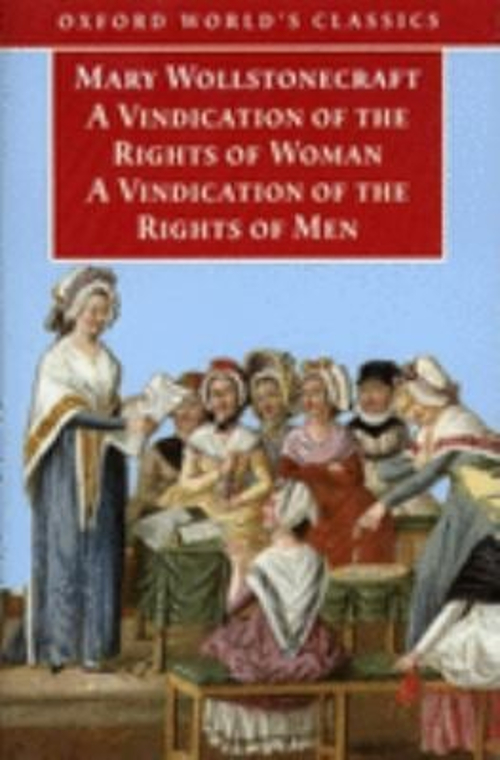Picture 1 of 2

Stock photo


Picture 1 of 2

Stock photo


Vindication of the Rights of Men; a Vindication of the Rights of Woman; an Historical and Moral View of the French Revolution by Mary Wollstonecraft (2004, Trade Paperback)

Better World Books (2873500)
99.2% positive feedback
Price:
$11.21
Returns:
30 days returns. Buyer pays for return shipping. If you use an eBay shipping label, it will be deducted from your refund amount.
Condition:
Book
Oops! Looks like we're having trouble connecting to our server.
Refresh your browser window to try again.
About this product
Product Identifiers
PublisherOxford University Press, Incorporated
ISBN-100192836528
ISBN-139780192836526
eBay Product ID (ePID)30762354
Product Key Features
Book TitleVindication of the Rights of Men; a Vindication of the Rights of Woman; an Historical and Moral View of the French Revolution
Number of Pages450 Pages
LanguageEnglish
Publication Year2004
TopicEurope / France, Human Rights, Civil Rights, Women's Studies, Political, Political Freedom, European / English, Irish, Scottish, Welsh
GenrePolitical Science, Philosophy, Social Science, Literary Collections, History
AuthorMary Wollstonecraft
Book SeriesOxford World's Classics Ser.
FormatTrade Paperback
Dimensions
Item Height0.9 in
Item Weight10.9 Oz
Item Length7.7 in
Item Width5.1 in
Additional Product Features
Intended AudienceTrade
LCCN2004-559496
TitleLeadingA
Reviews'... this edition does away with the idea of M. W. as Tom Paine in Skirts. Her mind is deepter and richer than his; her transmutation of the turmoil of her experiences during the revolutionary period in France is remarkable.'The Observer
Dewey Edition22
Dewey Decimal305.42
Table Of ContentA Vindication of the Rights of ManA Vindication of the Rights of WomanAn Historical and Moral View of the French Revolution
SynopsisThis volume brings together the major political writings of Mary Wollstonecraft in the order in which they appeared in the revolutionary 1790s. It traces her passionate and indignant response to the excitement of the early days of the French Revolution and then her uneasiness at its later bloody phase. It reveals her developing understanding of women's involvement in the political and social life of the nation and her growing awareness of the relationship between politics and economics and between political institutions and the individual. In personal terms, the works show her struggling with a belief in the perfectibility of human nature through rational education, a doctrine that became weaker under the onslaught of her own miserable experience and the revolutionary massacres. Janet Todd's introduction illuminates the progress of Wollstonecraft's thought, showing that a reading of all three works allows her to emerge as a more substantial political writer than a study of The Rights of Woman alone can reveal.
LC Classification NumberJC571 .W87 1994
All listings for this product
Be the first to write a review



















